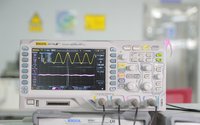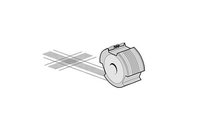IC Matters: Application Fields and Failure Factors of IGBT
Date:2024-08-15 11:17:00
Common testing methods and experiences for electronic components
Date:2024-07-03 16:00:00
About IC: Introduction to Infrastructure Diodes and Discrete and Integrated Circuits
Date:2024-07-02 10:59:00
The purpose of oblique impact testing for electronic components
Date:2024-06-19 10:34:26
The importance of connector insertion and extraction force testing
Date:2024-06-19 10:34:17
Test methods and items for secondary screening of electronic components
Date:2024-06-18 11:19:56
What tests are generally required for electronic products?
Date:2024-06-18 11:19:44
Fully understand the key details of EMC testing report application
Date:2024-06-17 10:56:07
Quality control and inspection methods for component assembly
Date:2024-06-17 10:56:03
Reliability testing and testing standards for temperature sensors
Date:2024-06-14 10:26:10




 Weixin Service
Weixin Service

 DouYin
DouYin
 KuaiShou
KuaiShou































